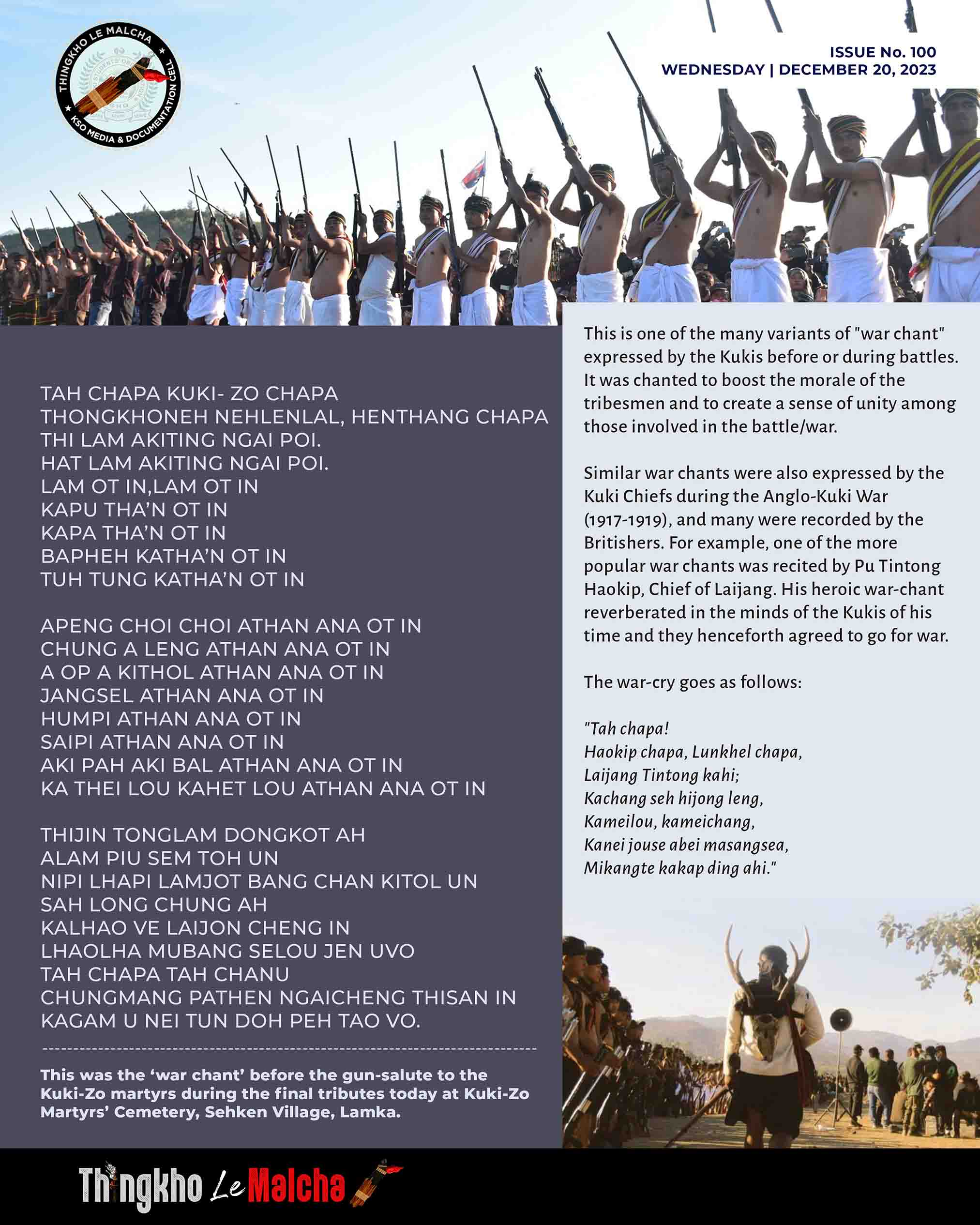
TAH CHAPA KUKI- ZO CHAPA
THONGKHONEH NEHLENLAL, HENTHANG CHAPA
THI LAM AKITING NGAI POI.
HAT LAM AKITING NGAI POI.
LAM OT IN,LAM OT IN
KAPU THA’N OT IN
KAPA THA’N OT IN
BAPHEH KATHA’N OT IN
TUH TUNG KATHA’N OT IN
APENG CHOI CHOI ATHAN ANA OT IN
CHUNG A LENG ATHAN ANA OT IN
A OP A KITHOL ATHAN ANA OT IN
JANGSEL ATHAN ANA OT IN
HUMPI ATHAN ANA OT IN
SAIPI ATHAN ANA OT IN
AKI PAH AKI BAL ATHAN ANA OT IN
KA THEI LOU KAHET LOU ATHAN ANA OT IN
THIJIN TONGLAM DONGKOT AH
ALAM PIU SEM TOH UN
NIPI LHAPI LAMJOT BANG CHAN KITOL UN
SAH LONG CHUNG AH
KALHAO VE LAIJON CHENG IN
LHAOLHA MUBANG SELOU JEN UVO
TAH CHAPA TAH CHANU
CHUNGMANG PATHEN NGAICHENG THISAN IN
KAGAM U NEI TUN DOH PEH TAO VO.
______________________________________________________________________________________
This is one of the many variants of "war chant" expressed by the Kukis before or during battles. It was chanted to boost the morale of the tribesmen and to create a sense of unity among those involved in the battle/war.
Similar war chants were also expressed by the Kuki Chiefs during the Anglo-Kuki War (1917-1919), and many were recorded by the Britishers. For example, one of the more popular war chants was recited by Pu Tintong Haokip, Chief of Laijang. His heroic war-chant reverberated in the minds of the Kukis of his time and they henceforth agreed to go for war.
The war-cry goes as follows:
"Tah chapa!
Haokip chapa, Lunkhel chapa,
Laijang Tintong kahi;
Kachang seh hijong leng,
Kameilou, kameichang,
Kanei jouse abei masangsea,
Mikangte kakap ding ahi."

Thingkho Le Malcha (TLM) is a traditional method of communication used to send out messages across the Kuki hills during the Anglo-Kuki War,1917-1919... more

If you would like to received a free softcopy of Thingkho le Malcha, you can follow our Whatsapp and Telegram by clicking the below links.
For any other media related you can contact us using below email